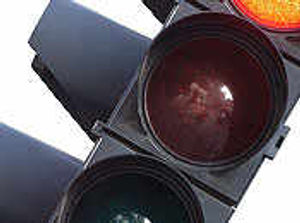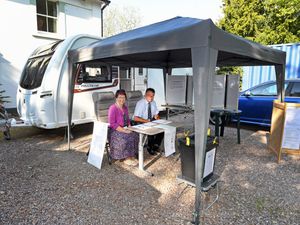New traffic lights to cut gridlock
More sets of intelligent traffic lights which adjust signals depending on the volume of traffic are being installed around the West Midlands to beat congestion. More sets of intelligent traffic lights which adjust signals depending on the volume of traffic are being installed around the West Midlands to beat congestion. Around £26 million is to be spent on new lights, warning signals and computer systems all over the region. The jam-busting scheme, which operates in Wolverhampton and across the Black Country, helps get traffic moving more swiftly around some of the most crowded roads. Known as urban traffic control, special centres operate traffic signals, variable message signs, CCTV and car park guidance signs. Read the full story in the Express & Star.


Around £26 million is to be spent on new lights, warning signals and computer systems all over the region.
The jam-busting scheme, which operates in Wolverhampton and across the Black Country, helps get traffic moving more swiftly around some of the most crowded roads. Known as urban traffic control, special centres operate traffic signals, variable message signs, CCTV and car park guidance signs.
All use the computerised traffic management system which adjust traffic light timings based on the level and direction of congestion as recorded by signals embedded in the road.
Wolverhampton City Council is leading the project and Councillor Peter Bilson, the city's regeneration and enterprise chief, today hailed it as an important scheme.
"Tackling congestion is high on the agenda for all local authorities at the moment," he said. "This is a way of addressing it through technology."
Urban traffic control centres operate in each of the West Midlands authority areas apart from Dudley, which is serviced by Wolverhampton.
Councillor Bilson added: "This spending would mean new equipment in the centres and on the roads and improved systems.
"The need was identified in one of the periodic reviews of how we do things."
He said the improvements would allow better planning for major incidents on the region's roads and improved response to emergency situations.
The Department for Transport has approved the scheme in principle and is now awaiting a funding application from councils.
Wolverhampton City Council is meeting tomorrow and is expected to approve £1.9 million of funding to employ the company to take the bid forward. The full programme of works would take five years to introduce.





